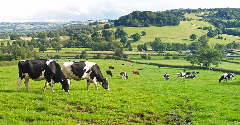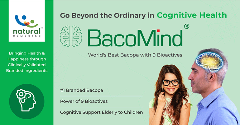News
Globesity. We have the technology – what’s the missing ingredient?
16 Nov 2015
Obesity, fat’s new frontier – 1 billion people will be obese by 2030. The world is getting fatter faster. Fat is being labelled the new tobacco…. It’s sugar, it’s fat, it’s when they are both combined, or it’s chemistry or pharmacy, social or economic reasons or other health problems – I’m depressed. The debate continues…
Overall social attitudes towards diets and healthy lifestyles today do not reflect the vast benefits available from what research and science into food ingredients has made possible. Despite research success over the last 20 years, is there a missing ingredient? Is this yet another fancy idea or can our emotions, feelings and higher levels of consciousness or vibrations possibly influence the manufacturing and consuming process?
Intuition, inspiration or inner guidance can direct us to food that has vitality. However, through instinct, hunger habit or craving, the scope of diet is always limited to the food that we actually eat. We can know that mentally, but knowing through our body is a more certain way to improve our physical being.
A food can be termed anti-life (unhealthy) in two ways: when it changes the natural process of how our bodies function in good health, diminishing healthy functioning, or, alternatively when a food from which life has been extracted through over-processing or other modifications is effectively lifeless or dead.
Inanimate or defunct foods alter our metabolism, sleeping patterns, alertness, ability to concentrate, quality of emotion, and ability to maintain an even keel. The main culprits or offenders are: refined sugar, caffeine, alcohol, white flour, toxic substances even in small amounts, preservatives, chemicals, and pesticides – they make the body work in ways it is not accustomed to. Also, trace elements do not occur in the body naturally and therefore cannot be processed or metabolised. Any alterations to foods such as canning, heating, or refining has literally boiled, pressed, drained, or compressed the life out of them.

To love our bodies is to give ourselves food that contains life: vital foods that are natural and whole rather than lifeless and dead. The higher its vibrational frequency, its “vibe”, the higher the energy food has and the more alive it is. Vegetarian, vegan, hydration, and raw add to vibes. Organic, local and fresh contain more life force. Eating in season means being in tune with natural cycles of the earth and can be infused with loving intent.
There is some evidence of these activities on a small scale. The real question is - can these choices and this transformation be made by the manufacturing plant/outlets, and then subsequently by the end consumer?
Charles Faulkner, Editor , Nutraceuticals Now

Related news

Has ‘clean’ had its day?
22 Dec 2025
Wielding clean-label positioning and fortification as marketing levers is a dangerous strategy, and brands would be better off explaining the hows and whys of the ingredients in their products, say experts.
Read more
Celebrating the winners of the Fi Europe Innovation Awards 2025
3 Dec 2025
Food industry stakeholders celebrated as the winners of the Fi Europe Innovation Awards were announced at a ceremony in Paris.
Read more
Alternative protein startups pivot to B2B ingredients amid funding shift
27 Nov 2025
Alt protein startups are pivoting from consumer meat analogues to high-value B2B ingredients, driven by stronger investor interest, better margins, and clearer commercial pathways.
Read more
Walmart Marketplace’s record growth prompts search for UK sellers
26 Sep 2025
Walmart’s third-party e-commerce platform, Marketplace, has witnessed extraordinary growth – but a need for more product diversity has prompted the retailer to recruit UK sellers.
Read more
The winners of Vitafoods Europe Startup Challenge 2025 revealed
29 May 2025
Four startups – Yomio Drops, PFx Biotech, Revobiom, and Favamole – took top prizes at this year’s Vitafoods Europe Startup Challenge awards.
Read more
East takes on West in the fight for future food flavours
30 Apr 2025
Asian and South American flavours are now key components on global menus, driven by a growing global appetite for culinary mashups.
Read more
Food companies urged to bring ‘joy’ and urgency to healthy food mission
14 Mar 2025
For too long, businesses have treated health and sustainability as separate agendas – but there is growing evidence to show diets that benefit human health can also enhance that of the planet, say experts.
Read more
Entries open for inaugural Vitafoods Europe Innovation Awards
29 Jan 2025
Entries are open for the inaugural Vitafoods Europe Innovation Awards, celebrating the ingredients, finished products, partnerships, and initiatives redefining the nutraceutical landscape.
Read more
Paris Olympics: Food and beverage brands champion health, fun, and sustainability
5 Aug 2024
Food and beverage brands are aligning with the Paris Olympics 2024 Food Vision, which emphasises sustainability, local sourcing, and plant-based diets.
Read more
Natural Remedies: Bringing health and happiness via validated branded ingredients
18 Apr 2024
Natural Remedies is an internationally renowned botanical healthcare company committed to advancing the field through rigorous research and the development of clinically validated Branded Ingredients. Guided by our foundational principle of ‘BEING USEF...
Read more